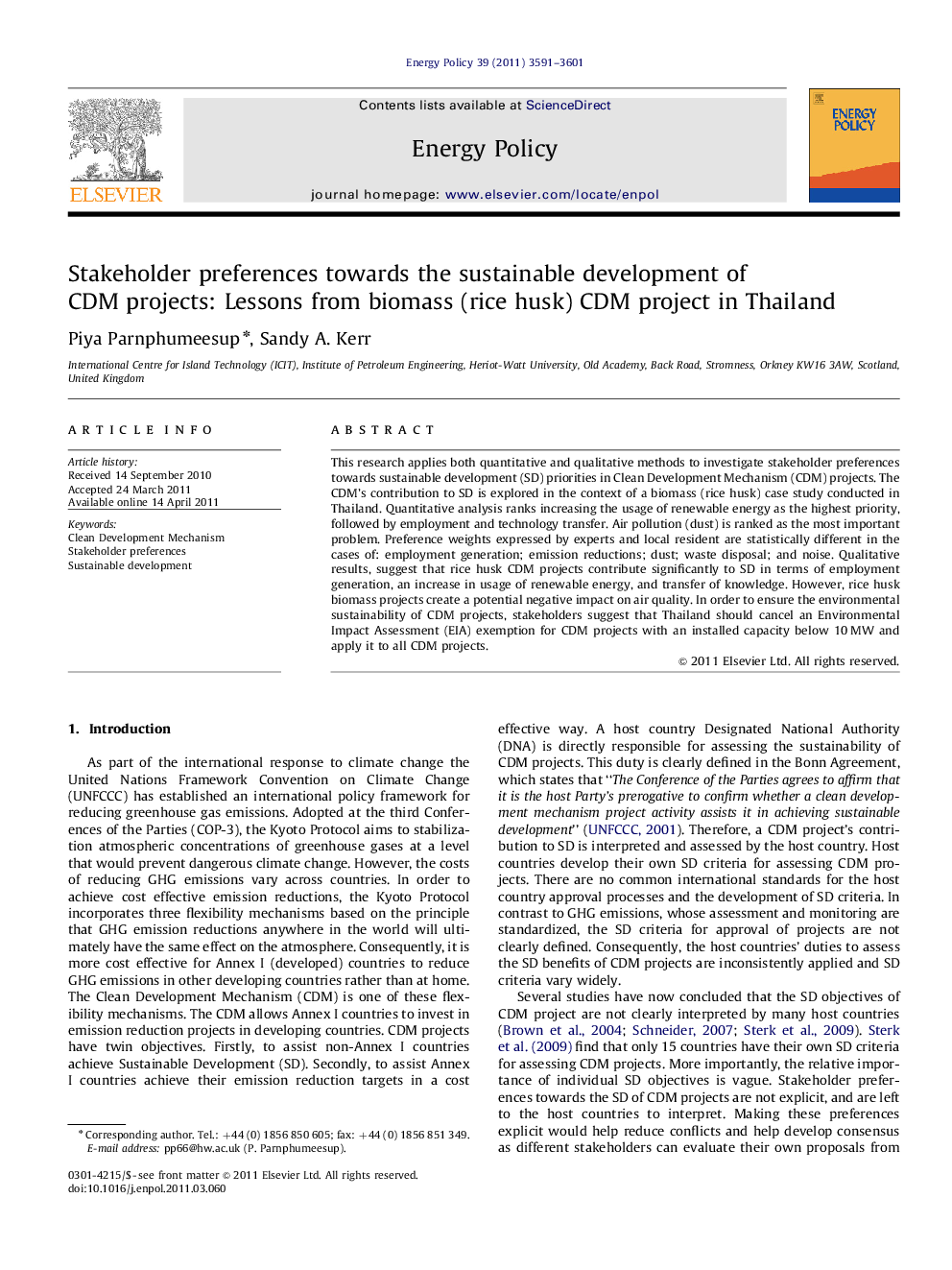| Article ID | Journal | Published Year | Pages | File Type |
|---|---|---|---|---|
| 994942 | Energy Policy | 2011 | 11 Pages |
This research applies both quantitative and qualitative methods to investigate stakeholder preferences towards sustainable development (SD) priorities in Clean Development Mechanism (CDM) projects. The CDM's contribution to SD is explored in the context of a biomass (rice husk) case study conducted in Thailand. Quantitative analysis ranks increasing the usage of renewable energy as the highest priority, followed by employment and technology transfer. Air pollution (dust) is ranked as the most important problem. Preference weights expressed by experts and local resident are statistically different in the cases of: employment generation; emission reductions; dust; waste disposal; and noise. Qualitative results, suggest that rice husk CDM projects contribute significantly to SD in terms of employment generation, an increase in usage of renewable energy, and transfer of knowledge. However, rice husk biomass projects create a potential negative impact on air quality. In order to ensure the environmental sustainability of CDM projects, stakeholders suggest that Thailand should cancel an Environmental Impact Assessment (EIA) exemption for CDM projects with an installed capacity below 10 MW and apply it to all CDM projects.
► Stakeholders rank increasing the usage of renewable energy as the highest priority. ► Biomass (rice husk) CDM projects create a potential negative impact on air quality. ► Rice husk CDM projects cannot give an extra income to farmers. ► Preference weights expressed by experts and local residents are statistically different.
